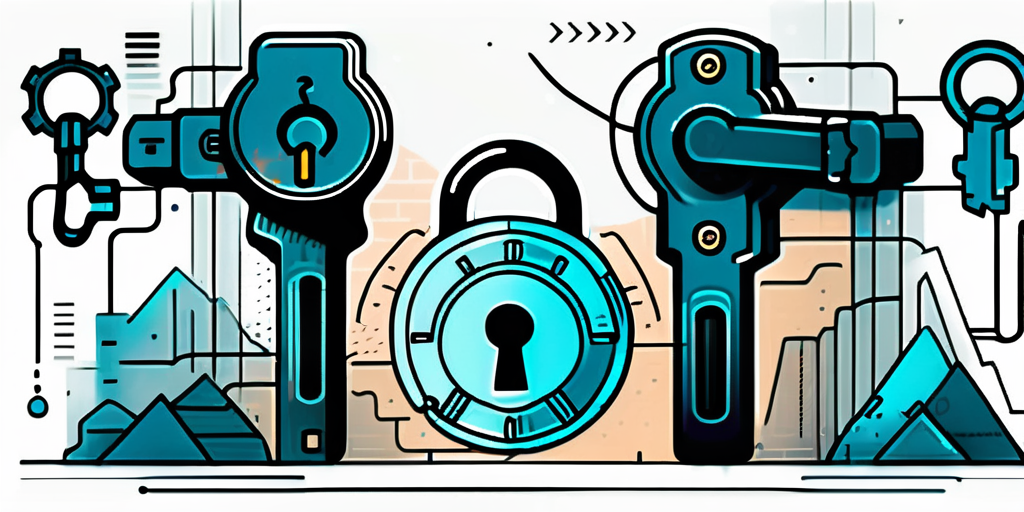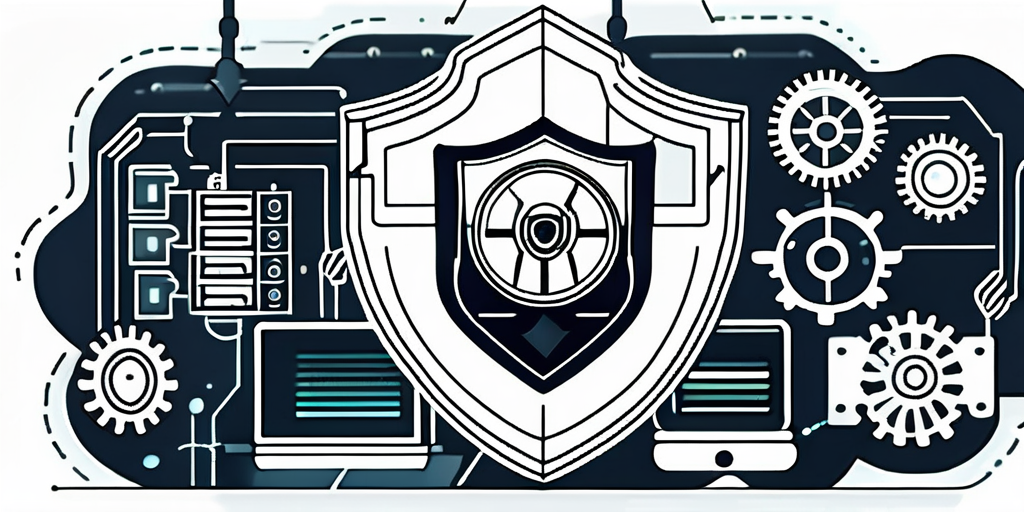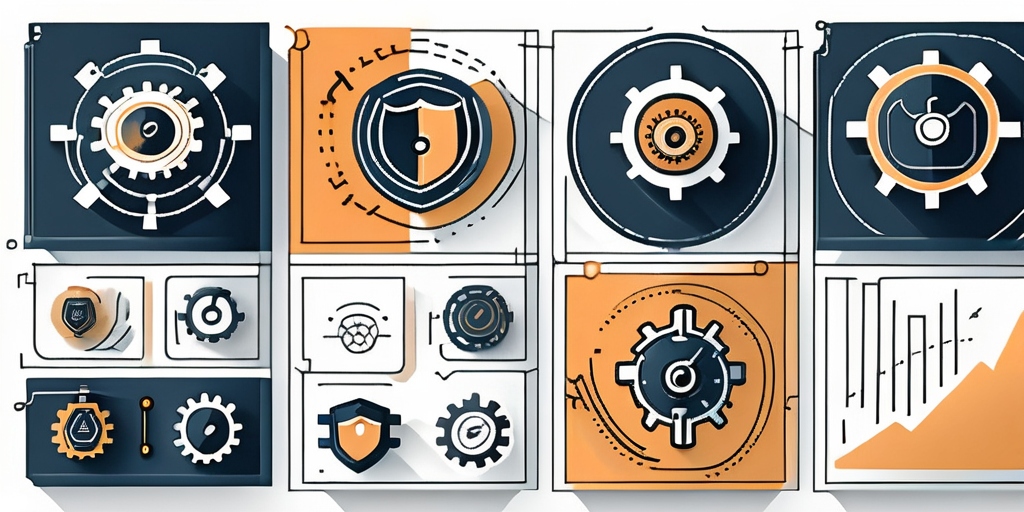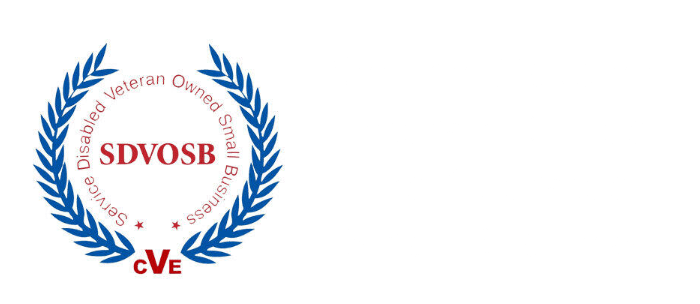In today’s rapidly evolving digital landscape, security has become an indispensable component of software development. Secure software delivery has never been more critical as businesses increasingly rely on technology to drive growth and innovation. In this quick guide, we will explore the significance of security in DevOps and provide essential insights to help DevOps teams enhance their security practices.
Understanding the Importance of Security in DevOps
DevOps, a methodology that blends software development (Dev) and IT operations (Ops), has revolutionized the software delivery process. By fostering collaboration, automation, and continuous integration, DevOps enables organizations to streamline development cycles and deliver software faster. However, in the race to accelerate development, security considerations are often neglected or treated as an afterthought.
DevOps teams must recognize that security is an integral part of the development process. With the ever-increasing prevalence of cyber threats, software vulnerabilities can have severe consequences, ranging from data breaches and financial losses to reputational damage. By incorporating security practices early in the development lifecycle, DevOps teams can proactively mitigate risks and ensure the delivery of robust, secure software.
The Role of DevOps in Modern Software Development
Before delving into the importance of security in DevOps, it is essential to understand the role that DevOps plays in modern software development. Traditionally, software development followed a linear, sequential approach, with separate teams responsible for development, testing, and deployment. This approach often led to lengthy development cycles, reduced collaboration, and increased deployment risks.
DevOps emerged as a response to these challenges. By breaking down silos and promoting closer collaboration between development and operations teams, DevOps enables organizations to deliver software more efficiently. DevOps practices, such as continuous integration, continuous delivery, and infrastructure as code, bring development and operations together, leading to faster releases, improved agility, and enhanced customer satisfaction.
One of the key benefits of DevOps is the ability to deliver software in smaller, more frequent increments. This iterative approach allows for rapid feedback and continuous improvement. By breaking down complex projects into smaller, manageable tasks, DevOps teams can identify and address issues earlier in the development process, resulting in higher quality software.
Furthermore, DevOps promotes a culture of collaboration and shared responsibility. Development and operations teams work together throughout the entire software development lifecycle, from planning and coding to testing and deployment. This collaborative approach fosters a sense of ownership and accountability, leading to improved communication, reduced errors, and faster problem resolution.
Why Security is Crucial in DevOps
Security is a critical aspect of the software development lifecycle, and the necessity for security measures becomes even more pronounced in the context of DevOps. While speeding up software development is crucial, it should never come at the expense of security. Integrating security early in the DevOps pipeline helps minimize potential vulnerabilities and ensures the delivery of secure software.
DevOps introduces several unique challenges to software security. The rapid pace of development, frequent code changes, and reliance on automated tools can inadvertently introduce security gaps if not adequately addressed. Hackers are constantly looking for vulnerabilities, making it necessary for DevOps teams to prioritize secure development practices.
One of the key principles of DevOps is automation. Automated testing, deployment, and monitoring tools are essential for achieving continuous integration and continuous delivery. However, if security is not integrated into these automated processes, it can lead to vulnerabilities being introduced into the software. DevOps teams must ensure that security testing and analysis are incorporated into the automated pipelines to identify and address any security weaknesses.
Another challenge in DevOps is the need for rapid response and recovery in the event of a security incident. With frequent releases and continuous deployment, the ability to quickly detect and respond to security threats is crucial. DevOps teams must have incident response plans in place and regularly test and refine them to ensure a swift and effective response to any security incidents.
In conclusion, security is a vital component of DevOps. By integrating security practices early in the development process, DevOps teams can minimize vulnerabilities and deliver secure software. The collaborative nature of DevOps, combined with automation and continuous improvement, provides a solid foundation for building and maintaining secure software systems.
Key Security Concepts for DevOps Teams
Understanding the security risks specific to the DevOps environment is crucial for DevOps teams to effectively safeguard software. By being aware of security concepts and best practices, teams can proactively address vulnerabilities and build a robust security foundation. Let’s explore two fundamental security concepts for DevOps teams:

Security Risks in the DevOps Environment
DevOps environments are susceptible to a range of security risks that can compromise software integrity and expose sensitive data. It is essential for DevOps teams to stay informed about these risks and employ appropriate security measures to mitigate them. Some common risks include:
- Insufficient access controls: Inadequate management of user access privileges can allow unauthorized individuals to gain access to critical systems and resources. This can lead to unauthorized data breaches and compromise the confidentiality and integrity of software.
- Flawed code: The use of vulnerable code or the absence of secure coding practices can result in exploitable software vulnerabilities. DevOps teams should prioritize regular code reviews to identify and remediate these vulnerabilities.
- Weak authentication and authorization mechanisms: Insecure authentication and authorization practices can lead to unauthorized access and data breaches. It is crucial for DevOps teams to implement robust authentication and authorization mechanisms to ensure only authorized individuals have access to sensitive systems and data.
- Inadequate monitoring and logging: Without proper monitoring and logging, it becomes challenging to detect and investigate security incidents or breaches. DevOps teams should prioritize implementing comprehensive monitoring and logging solutions to promptly detect and respond to security threats.
By understanding and proactively addressing these security risks, DevOps teams can enhance the overall security posture of their software systems.
Essential Security Protocols for DevOps
Implementing robust security protocols is crucial for maintaining the integrity and confidentiality of software systems. DevOps teams should prioritize the following security practices:
- Secure code reviews: Conduct regular code reviews to identify and remediate software vulnerabilities. Integrating security scanners and static code analysis tools can help identify potential issues early in the development process. By consistently reviewing and improving code quality, DevOps teams can minimize the risk of introducing vulnerabilities into their software.
- Vulnerability management: Establish procedures to monitor and address software vulnerabilities promptly. Regularly update dependencies and third-party libraries while staying informed about emerging threats. By actively managing vulnerabilities, DevOps teams can reduce the risk of exploitation and ensure the security of their software systems.
- Secure configuration management: Implement secure configuration management practices for both infrastructure and application components. This includes hardening systems, securely managing secrets, and adhering to industry best practices. By ensuring secure configurations, DevOps teams can mitigate the risk of unauthorized access and maintain the integrity of their software systems.
- Continuous security testing: Automated security testing, such as penetration testing and vulnerability scanning, helps identify weaknesses and vulnerabilities across the development pipeline. Regular testing ensures prompt detection and remediation of security issues. By integrating security testing into their development processes, DevOps teams can proactively identify and address vulnerabilities.
- Secure deployment and release processes: Implement secure deployment practices, such as validating and signing software artifacts, and utilizing secure deployment pipelines. Properly configured release management processes minimize the risk of deploying compromised software. By prioritizing secure deployment and release processes, DevOps teams can ensure the integrity and availability of their software systems.
By prioritizing these essential security protocols, DevOps teams can establish a strong security foundation and effectively safeguard their software systems.
Building a Security-Aware DevOps Culture
Creating a security-aware culture is vital to ensure that security considerations are ingrained in every aspect of the DevOps process. By promoting security awareness and fostering a security-conscious mindset within DevOps teams, organizations can significantly enhance their overall security posture.

When it comes to integrating security seamlessly into the DevOps workflow, a holistic approach is necessary. It involves a series of key steps that effectively embed security throughout the DevOps lifecycle.
Integrating Security into the DevOps Lifecycle
Education and training play a crucial role in building a security-aware DevOps culture. Providing comprehensive security training to DevOps teams enables them to understand and mitigate common security risks. Regular training sessions and workshops help build a security-conscious mindset, ensuring that security is not an afterthought but an integral part of the development process.
Collaboration and communication are also essential in integrating security into the DevOps lifecycle. By fostering strong collaboration between security, development, and operations teams, organizations can ensure that security concerns are addressed promptly and effectively. Open communication channels enable teams to share knowledge, exchange ideas, and collectively work towards enhancing security measures.
Establishing security-focused metrics and feedback loops is another critical step in the integration process. By defining metrics to measure the effectiveness of security controls and practices, organizations can continuously monitor and assess their security measures. The feedback obtained from these metrics helps identify areas for improvement and drives the implementation of stronger security measures.
Automated security checks are invaluable in identifying vulnerabilities early on in the DevOps pipeline. By integrating automated code analysis, security testing, and dynamic scanning of infrastructure and applications, organizations can proactively detect and address security issues. These automated checks ensure that security is not compromised during the fast-paced DevOps process.
Promoting Security Awareness Among DevOps Teams
Fostering a culture of security awareness among DevOps teams is essential to ensure that security practices become second nature. There are several strategies that organizations can employ to promote security awareness:
- Regular security training sessions and workshops provide an opportunity for teams to stay updated on the latest security threats and best practices. These sessions help reinforce the importance of security and equip team members with the knowledge and skills to address security concerns.
- Sharing real-world security incidents and their consequences can serve as powerful reminders of the potential impact of security breaches. By discussing past incidents, teams gain a deeper understanding of the importance of security and the need for proactive measures.
- Recognizing and rewarding security-conscious behavior encourages team members to prioritize security in their daily work. By acknowledging and appreciating individuals who demonstrate a strong commitment to security, organizations reinforce the value of security awareness.
- Encouraging the reporting of potential security issues creates a culture of transparency and accountability. When team members feel comfortable reporting vulnerabilities or suspicious activities, organizations can address these issues promptly, minimizing the potential impact.
- Promoting cross-functional collaboration is crucial in jointly addressing security challenges. By fostering collaboration between different teams, such as security, development, and operations, organizations can leverage diverse expertise and perspectives to enhance security measures.
By fostering a security-aware culture, organizations empower DevOps teams to proactively address security concerns and strengthen the overall security posture. With security ingrained in every aspect of the DevOps process, organizations can confidently embrace the benefits of DevOps while ensuring the protection of their systems and data.
Tools and Techniques for Enhancing DevOps Security
Utilizing the right tools and techniques can significantly enhance DevOps security. Let’s explore some essential tools and practices:
Automated Security Tools for DevOps
Automated security tools play a crucial role in detecting vulnerabilities and ensuring secure software delivery. Some popular security tools for DevOps include:
- Static code analysis tools: These tools analyze the source code for potential vulnerabilities and coding errors.
- Dynamic application security testing (DAST) tools: DAST tools scan running applications to identify vulnerabilities and security weaknesses.
- Container security tools: With the proliferation of containers, ensuring container security is essential. Container security tools help identify vulnerabilities and enforce secure configurations.
- Continuous integration and continuous delivery (CI/CD) tools: CI/CD tools automate the software build, testing, and deployment processes while allowing for seamless security integration.
Best Practices for Secure DevOps Operations
Besides utilizing advanced security tools, implementing best practices is crucial for maintaining and improving security in DevOps. Here are some practices to consider:
- Implementing secure development frameworks and methodologies
- Establishing secure coding standards and practices
- Using secrets management tools to securely store and access sensitive data
- Implementing robust authentication and authorization mechanisms
- Regularly monitoring and reviewing security logs and events
By following these best practices, DevOps teams can ensure that security remains at the forefront of their operations.
Maintaining and Improving Security in DevOps
Ensuring continuous security improvement is essential to protect software from emerging threats. DevOps teams should adopt strategies to maintain and improve security in their processes.
Regular Security Audits and Updates
Conducting regular security audits and updates is crucial for identifying potential vulnerabilities and weaknesses. By performing comprehensive audits, teams can gain visibility into their security posture and make informed decisions to improve security.
Regular updates to software libraries, frameworks, and dependencies are also critical for addressing newly discovered vulnerabilities. DevOps teams should have processes in place to ensure prompt updates and secure patch management.
Continuous Learning and Improvement in DevOps Security
Security practices and threats are continuously evolving. DevOps teams should regularly educate themselves on emerging security trends, vulnerabilities, and industry best practices. By proactively seeking knowledge, teams can stay ahead of potential risks and continuously improve their security measures.
Encourage DevOps teams to participate in security conferences, workshops, and training sessions. These events provide valuable opportunities for networking, knowledge sharing, and staying updated with the latest security practices.
Conclusion
In today’s fast-paced, interconnected world, security must be ingrained into every aspect of software development. DevOps teams play a vital role in ensuring the delivery of secure software solutions. By understanding the significance of security in DevOps, embracing key security concepts, fostering a security-aware culture, utilizing appropriate tools and techniques, and maintaining a continuous improvement mindset, DevOps teams can navigate the evolving security landscape with confidence and deliver robust, secure software to their organizations.

As you’ve learned from this guide, security is not just a feature but a necessity in the DevOps process. Blue Goat Cyber understands your organization’s unique challenges, especially in medical device cybersecurity and compliance with HIPAA, FDA, SOC 2, and PCI standards. As a Veteran-Owned business, we’re committed to safeguarding your operations against cyber threats with our expert penetration testing and cybersecurity services. Contact us today for cybersecurity help! and let us help you strengthen your defenses.


